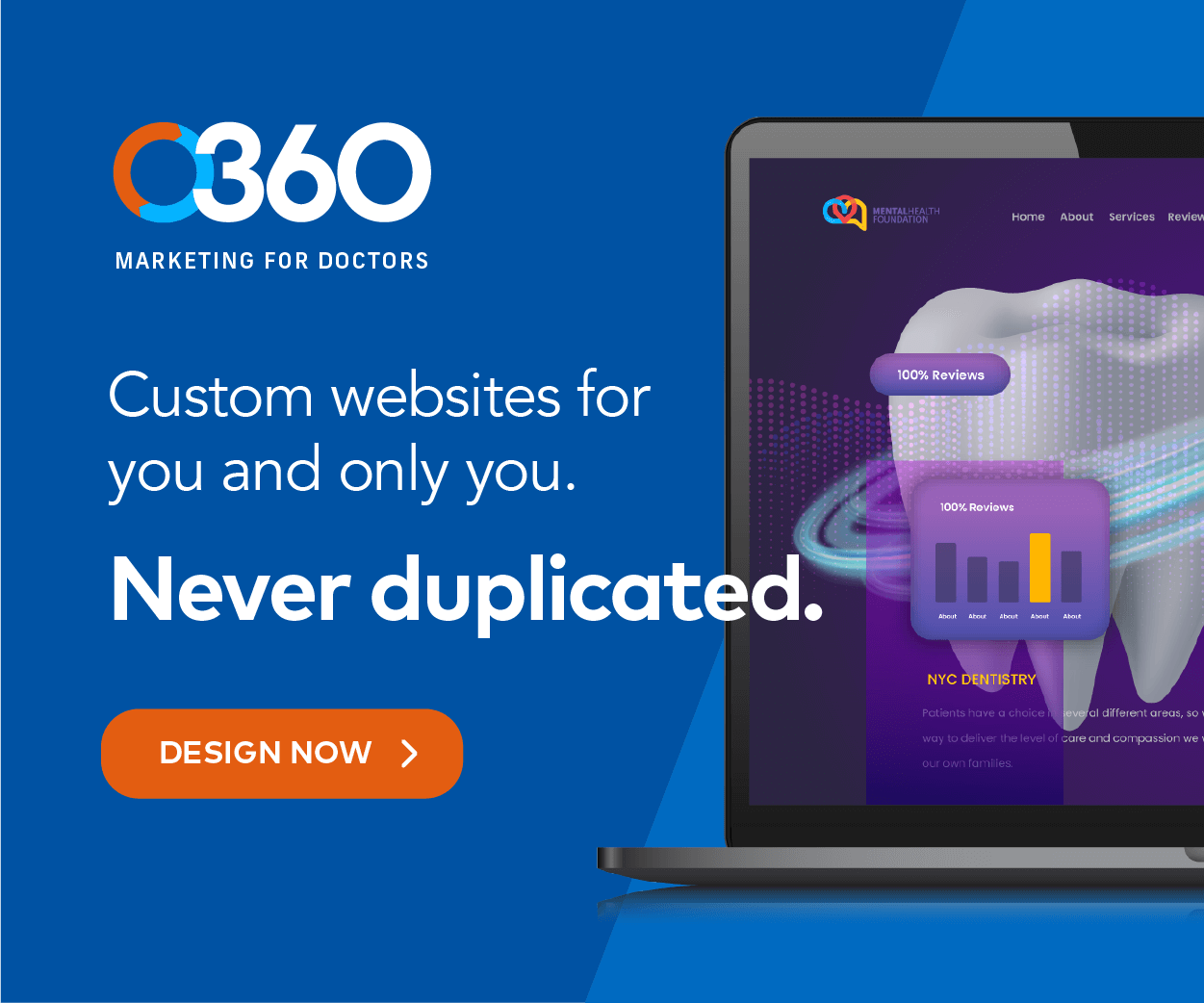Medical practices should always strive to satisfy their patients, but keeping everyone happy is impossible. In today’s age, reputation management is essential to ensuring your practice looks good online is as essential as the care you provide. Medical reputation management is just one crucial facet of providing the best possible standard of care, as it helps protect the brand you’ve built and the patients who rely on and support you for your services. In this short guide, we’ll examine why online reputation management is important and provide some tips for managing your online reputation.
What is Medical Reputation Management?
When satisfied patients discuss their experiences online, your practice’s reputation and yourself as a provider improve. However, for many practices today, this experience is more of a miscellaneous collection of positives and negatives, as appealing to the needs and desires of every patient can be challenging. Medical practice management works to mitigate negative experiences by reinforcing positive, in-person service and care. It’s a technique and method of reinforcing better standards of care for medical practices looking to care about their brand and the quality of their services.
Due to the expansive growth of the internet over the last decade, online reputation management in healthcare has become increasingly vital to successful medical practices, as patients have many resources to learn about their healthcare providers. A successful way to manage reputation starts with a solid understanding of the online channels and avenues patients go through to find your practice and leveraging those channels to control and monitor your online presence.
How To Begin Building A Professional Online Presence
Building your online reputation starts by understanding the components and avenues where your patients find you and can express their opinions about your practice. Some of these components include:
- Patient Reviews: Many patient review websites, such as Healthgrades, Yelp, and RateMD, offer avenues for patients to express their gratitude or dissatisfaction with your services. Many patients resort to these websites to report doctors and vet doctors for their qualifications and quality of care beforehand.
- Google Profile: Google is the most popular practice and patient search engine. It provides profiles for numerous businesses, and when a patient searches for a business by name, users can leave business reviews. Google reviews are a highly valuable tool that can help you keep an active profile and track how well your services are being provided.
- Social Media Profiles: Social media engagement is essential for any effective physician, as interactions help build trust and demonstrate your authority and experience. Social media is considered a great avenue for sharing knowledge and answering questions from new or recurring patients, and it’s an important part of online reputation management.
- Your Website: Lastly, the one place representing you and your brand is also the first place your patients will go to learn about your policies and business practices. It’s an essential element of online reputation management because it’s your public profile, the first place people will go to find you.

Tips For Better Online Reputation Management For Physicians
As ensuring that your practice looks good online is important, navigating online reputation management challenges can be tricky. Some aspects, such as negative patient reviews, responding to those reviews, and finding ways to connect with new patients, require extensive know-how in gathering feedback and staying on top of your online reputation to provide the best possible care. However, while this facet of medical reputation management can seem like a monumental task, there are some ways that it can be automated and simplified to help you focus on your main goal – helping patients.
The Power of Patient Testimonials and Social Proof
When satisfied patients can express their experiences online, these reviews can be used to manage your reputation. Placing these testimonials on your website or showcasing them on your social media channels can help new patients feel more confident about selecting you as their care provider.
With that in mind, encourage your patients to share their stories online. Use user surveys for patients in-office, ask your patients directly about their experiences, and even use online surveys for those subscribed to your newsletter to help encourage feedback about your business. Gathering these testimonials allows you to manage your reputation and remove and refine your business model for future patients.
Social Media and A Professional Online Profile
Being active on social media allows you to connect with your patients in ways that help foster trust and engagement with your current patients and can act as the prime example for newer patients looking for a new provider. Your platforms, which include review sites, Google reviews, and LinkedIn, are where you can correct and refine the information about you, your staff, and your business to provide the best impression possible.
It’s also super important to keep all your information, like your phone number and services, up-to-date everywhere you’re listed online. This helps ensure that when someone is looking for a doctor, they find you and get the right information.
Responding to Reviews: The Good, The Bad, and The Ugly
How you respond to your reviews can affect how people see your practice, and dealing with negative online reviews can be difficult. However, it’s essential to maintain a professional, trustworthy presence online, so even while bad reviews can seem harmful at first, it’s also a chance for you as a brand to do some reputation management and correct the mishaps that occurred with that patient. Responding to those reviews and offering ways to consolidate or correct the experience can help people view your practice in a better light.
When responding online, be responsible, thoughtful, and kind – not just for your online reputation but also as a person, a practice, and a medical professional. These should be the commitments that every physician aspires to when building their practice, no matter what.
Leveraging Digital Tools for Enhanced Engagement
If the influx of social media channels and review websites becomes challenging, it’s time to look towards online tools to help automate and manage how you engage with your patients. Digital tools such as TigerConnect, DemandHub, and CareCloud are examples of platform services that can help ensure you consistently receive feedback from your online profiles without managing it manually.
These technologies save time and ensure you’re consistently gathering feedback, which can help you stay on top of your online reputation and provide the best care. And offers ways to learn about your reviews, watch what’s said about you online, and understand how patients feel about your services.
SEO and Local Search Optimization
A core component of online reputation management comes from understanding when reviews come and how they reach you in the first place. Being easy to find online, especially for patients in your area, is essential for any local practice, and that’s where local SEO comes in. Ensuring your website content incorporates local SEO practices helps connect your website to your Google profile listings and other online profiles and keeps them up to date. When a patient’s looking to leave a review, local SEO places your business as the higher search result.
Having good SEO incorporated into your practice allows you to be more visible. It drives more traffic to your website, which, depending on your practice’s current reputation, can lead to more patients.
Continual Monitoring and Improvement
Because the internet is a constantly changing interface full of information, keeping an eye on how your reputation matches what patients say is just as vital. Regularly checking in and adjusting your online strategies based on what you find can ensure that your practice will survive and succeed in your sphere of competition. This also includes understanding the strategies and reviews that patients are leaving for your local competitors and problem-solving how you engage and interact with your patients daily.

Consult With Optimized360 For Your Online Reputation
A strong online reputation matters, especially for smaller practices with limited outreach. Online reputation in today’s medical market means providing constant attention to your online profiles, social media platforms, and current testimonials to ensure that your information is up-to-date and responsive to your patient’s quality of care. Overall, it’s a tedious process, and for practices managing patients every day, it can pose some huge challenges and even be overwhelming. That’s where Optimized360 comes in. As a medical marketing company, our SEO experts and website designers can help you care for your patients by managing their online reputation and ensuring you stand out from the crowd.
So, if you’re ready to take your medical practice to the next level, contact Optimized360. Let them help you build a strong online reputation that attracts more patients and shows the world the quality of care you provide. Don’t wait for patients to find you—take control of your online presence and let Optimized360 help you stand out in the digital age.














